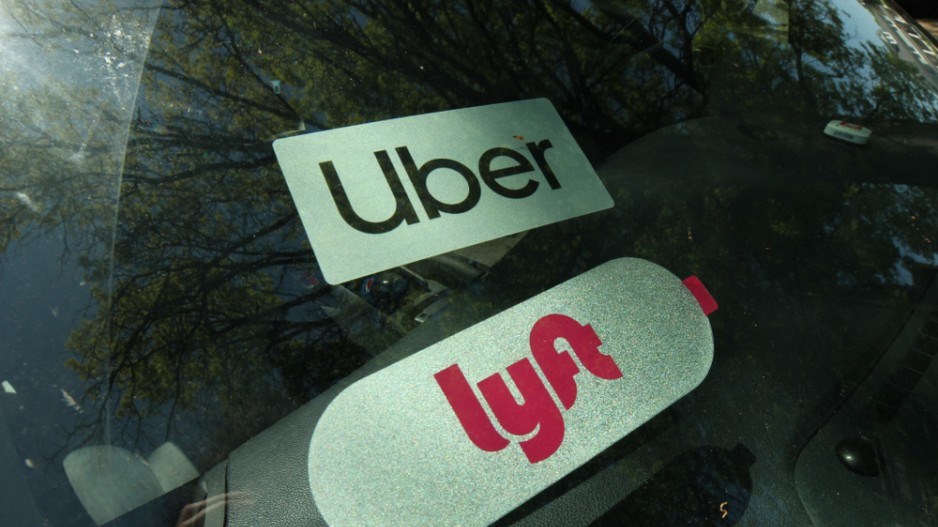What happened: Applications from Uber and Lyft to operate ride-hailing services in B.C. have been approved
Why it matters: The province has long been promising the arrival of these services, years after making their way into other jurisdictions
Ride-hailing finally looks to be zipping towards the streets of Metro Vancouver following significant delays.
The province’s Passenger Transportation Board (PTB) has approved the licence applications for Uber Canada Inc. and Lyft Canada Inc. to operate in the Lower Mainland and Whistler.
The next step for the multinational giants, which were given approval Thursday (January 23), will be to secure the appropriate insurance and land business licences from the relevant municipalities in which they plan to operate.
It’s unclear at the moment how long it will take before British Columbians will be able to start using these ride-hailing services.
Michael van Hemmen, Uber’s Head of Western Canada, said he expects his company to launch services in the “next few days” after the company receives a business licence from the City of Vancouver and final authorization from ICBC.
Uber will not be operating in other cities upon the initial launch of services.
Instead, it’s monitoring efforts by local mayors to create a regional business licence rather than the patchwork system of municipal licences previously in the works.
All the mayors — save for Surrey Mayor Doug McCallum — supported the motion.
Vancouver Mayor Kennedy, however, took to Twitter to announce that city staff were prepared to issue business licences to Uber and Lyft the same day that the PTB approved the companies' applications.
While Uber has not finalized its pricing scheme, van Hemmen told reporters in downtown Vancouver that the company hopes to have “attractive, affordable pricing for riders, while also ensuring that drivers are happy with their earnings.”
He added that the regulator’s requirement all drivers must possess a Class 4 licence would make offering services more difficult.
Van Hemmen declined to share how many drivers Uber has recruited in B.C. to date.
A representative from Lyft said the company would not be doing interviews just yet.
But Lyft’s general manager in B.C., Peter Lukomskyj, said in a statement his company is “thrilled” that it’s received the approval.
“We’re working closely with municipalities to ensure we have our business licences in place to begin operating. Once those are approved, we plan to announce our initial operating area, give our inaugural ride and launch our service,” he said.
While Premier John Horgan and Transportation Minister Claire Trevena had long promised British Columbians that ride-hailing would make its way to B.C. by the 2019 holidays, those promises only materialized with the approval of a single application by the end of last year.
Green Coast Ventures Inc., a Tofino-based company operating under the name Whistle, only plans to offer ride-hailing in smaller resort communities outside the Lower Mainland, such as Tofino, Ucluelet, Whistler, Pemberton and Squamish.
As for pricing, Lyft passengers will have to pay at least $5 every time they hop inside a vehicle, which includes a $2.50 base and a $2.50 service fee on top of $0.65 per kilometre and $0.33 per minute.
And in the City of Vancouver, passengers will pay additional $0.30 pick-up and drop-off fees between 7 a.m. and 7 p.m. for what it describes as its “metro core” — most of downtown out to Commercial Drive, and north of 16th avenue.
Furthermore, the PTB requires minimal pricing in B.C. to be based on taxi flag rates within an operating area.
In Metro Vancouver that runs between $3.25 and $3.95 when someone steps inside a vehicle in addition to prices charged for distance travelled.
Unlike many other jurisdictions, the PTB does not permit ride-hailing services to offer discounts to passengers below the minimum rate.
But the regulatory body will allow these services to raise prices during peak periods as demand swells.
Meanwhile, the PTB declined to approve licences for two B.C. operators: Kater Technologies Inc. and ReRyde Technologies Inc.
In its decision, the regulator described Kater's projected revenue as “overly optimistic.”
“The Board finds Kater’s business plan commitments and its 36-month cash projections are incongruous and unrealistic,” the PTB said in its decision.
“Its business plan is ambitious; the services it says it will provide and the stakeholder relationships it intends to build do not align with its financial information.”
The PTB also raised concerns that Kater did not account for market competition in its application.
“If there are other entrants into the market, Kater’s proposed rate structure (e.g. charging rates close to those of taxis) will put it at a disadvantage in acquiring market share, rendering its revenue projections even more unrealistic,” the PTB said.
As for ReRyde, the regulator took issue with the operator’s access to drivers.
“Of concern to the board is the lack of sufficient information in ReRyde’s business plan to show how it will provide ongoing active management of the vehicles and drivers operating in B.C.,” the PTB said in its decision.
“There is insufficient evidence of appropriate monitoring of drivers’ records, a lack of explanation as to the vetting and storage of driving and criminal record check documents and no reference to the need for annual updates of drivers’ records.”
- UPDATED January 23, 2:20 p.m. with comments from van Hemmen
- UPDATED January 23, 2:55 p.m. with comments from Stewart




